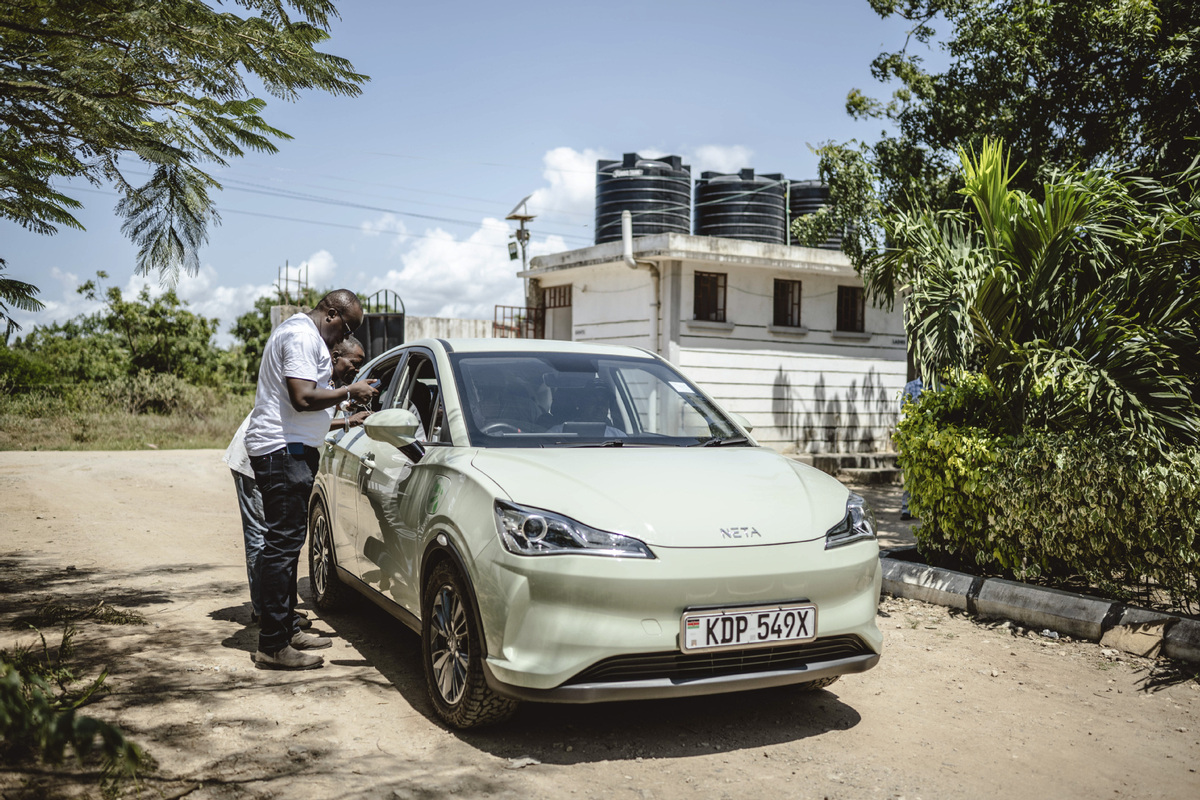Emerging fields inject new vitality into special relationship


In 2013, when I worked in Addis Ababa, Ethiopia, in the run-up to the launch of China Daily's African edition, a local auto dealer told me that unlike in China, where cars are purely consumer products, Ethiopians treat them as commodities that can be used for hedging purposes.
As the Ethiopian economy relied heavily on agriculture and aid from the Western world at that time, people believed that the value of cars rose like that of the US dollar and the euro, regardless of whether they were new or used.
I was shocked to hear that because I knew that in China, as soon as a new car is sold, its value notably drops and it becomes a used vehicle, even if it is only a week old.
During a business trip to Johannesburg, South Africa, in 2018, an Ethiopian journalist shared how this perception had shifted in his country. Despite still being price-sensitive when choosing a car for their families, many Ethiopians had moved away from buying secondhand Toyotas and were opting for new Chinese vehicles. In Ethiopian cities, cars were no longer regarded as fixed assets that can hold their value.
Toyota has dominated the Ethiopian car market since the 1980s. About six out of 10 vehicles, new and old, on the streets of the Ethiopian capital are made by the Japanese company.
Many secondhand Toyotas were not cheap; their prices were even higher than those of new cars produced and exported by Great Wall Motor, a Baoding, Hebei province-based carmaker, in the East African country, a decade earlier.
Fueled by industrialization, rapid urbanization, expanding infrastructure such as ports and airports, and the long-term growth strategies of many African countries, Africa today has evolved beyond being a vast market for small commodities like lamps, clothing, sun cream, bikes and suitcases.
African consumers are increasingly purchasing high-value Chinese goods, including electric vehicles, laptops, smartphones, drones and other household appliances.
In order to diversify their sales channels in overseas markets, Chinese companies have been allocating more resources to build a presence in Africa in recent years. For instance, Chinese carmaker Neta Auto opened its first dealership in Nairobi, Kenya, in June. It plans to build a cross-border sales network in Africa and sell its products to around 20 African countries over the next two years.
Xpeng Motors, a Guangzhou, Guangdong province-based automaker, also introduced two types of cars in the Egyptian market in June, signaling its intent to compete with rivals in both African and Middle Eastern markets.
To prevent risks, tapping into Africa's 1.4 billion-strong market requires Chinese companies to possess comprehensive market insights and strategic planning capabilities. Equally important is a focus on product quality and service excellence, to build a strong brand image and reputation.
Collaborating with local African businesses through localized operations can also help them better integrate into the African market, enabling scalable growth and long-term development.
China is the largest developing country in the world, and Africa is the continent with the highest concentration of developing nations. Despite being separated by vast distances, they will have more room to connect through their shared interests, with immense potential for cooperation.
While the trade scale in traditional sectors such as labor-intensive and primary processing industries continues to expand, China and Africa are increasingly extending their cooperation into emerging fields such as the digital economy, green and low-carbon development, trade in services, aerospace and financial services, injecting new vitality into China-Africa economic and trade cooperation.
China has implemented zero tariffs on 98 percent of products from some of the least developed African countries, and established "green channels" for African agricultural products to enter its market, according to information released by the Ministry of Commerce.
Additionally, China is attracting more African businesses to join its cross-border e-commerce platforms, actively sharing its opportunities for opening-up with Africa, helping African products expand their sales channels to enter China via platforms such as the China International Import Expo and the China-Africa Economic and Trade Expo, as well as facilitating their smoother and faster entry into other international markets.



































